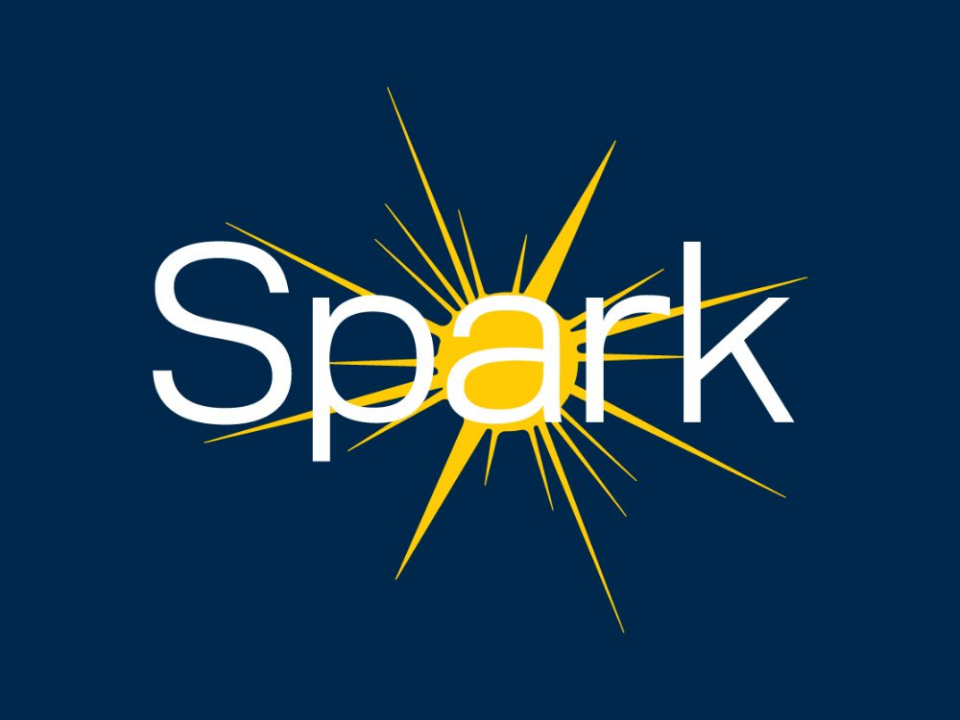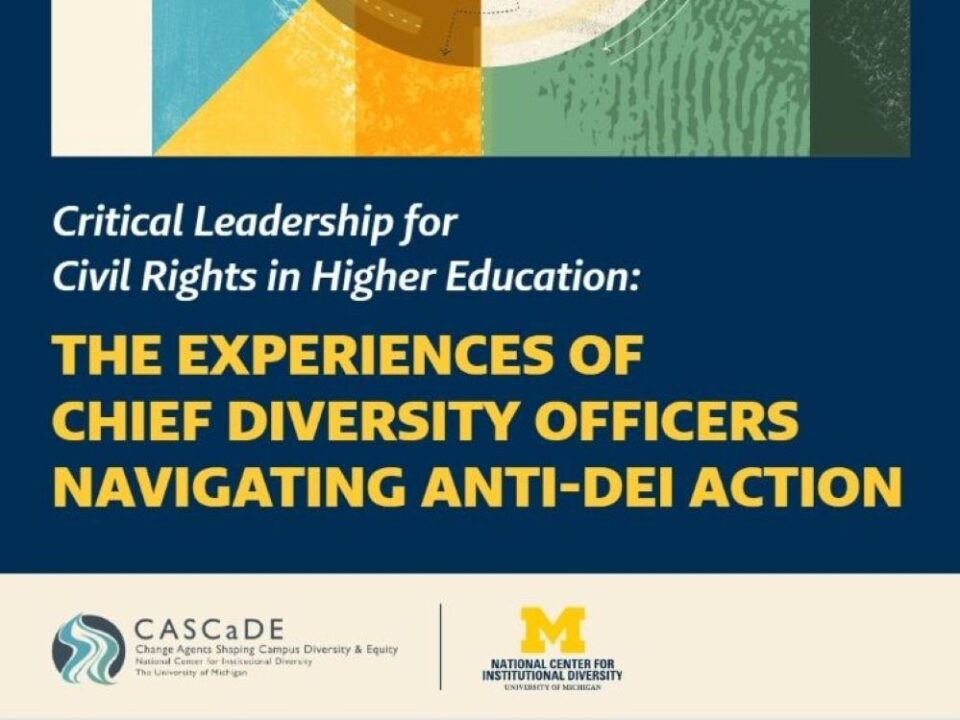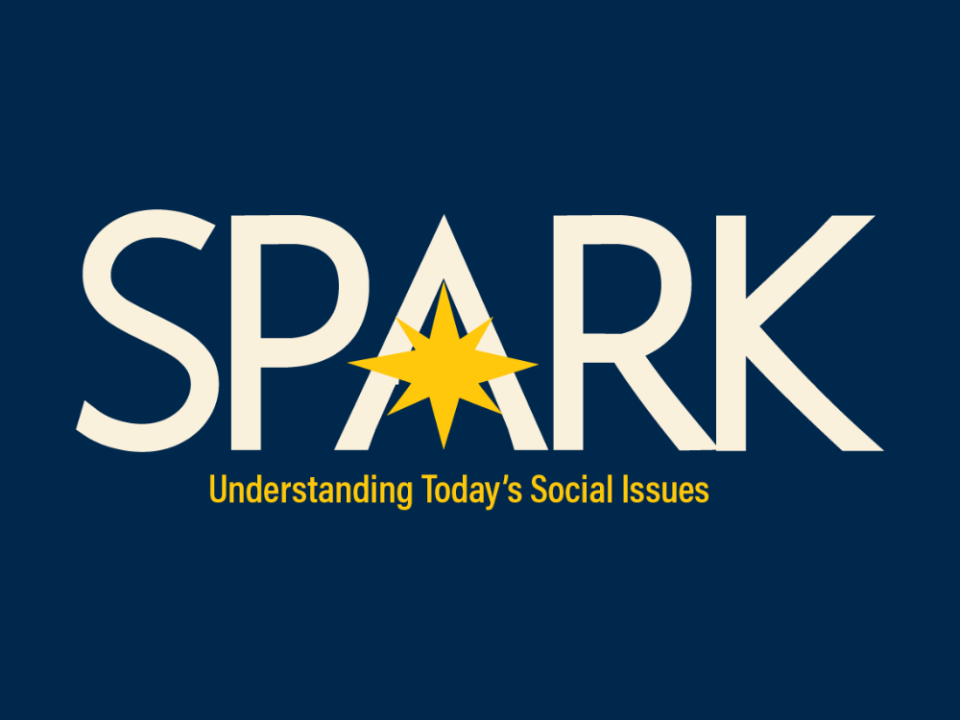- About
- News
- Events
- Initiatives
- Anti-Racism Collaborative
- Change Agents Shaping Campus Diversity and Equity (CASCaDE)
- Diversity Scholars Network
- Inclusive History Project
- James S. Jackson Distinguished Career Award for Diversity Scholarship
- LSA Collegiate Fellowship Program
- University Diversity & Social Transformation Professorship
- Publications & Resources
- About
- News
- Events
- Initiatives
- Anti-Racism Collaborative
- Change Agents Shaping Campus Diversity and Equity (CASCaDE)
- Diversity Scholars Network
- Inclusive History Project
- James S. Jackson Distinguished Career Award for Diversity Scholarship
- LSA Collegiate Fellowship Program
- University Diversity & Social Transformation Professorship
- Publications & Resources
NCID event “Campus Inclusion and Free Expression” featured in the Michigan Daily
April 11, 2018Scholar Story: Austin McCoy
May 8, 20182018 Recipients of Grants to Support Research and Scholarship for Change
In second cycle, NCID contributes funding to eleven research projects of various topics.
The Grants to Support Research and Scholarship for Change program provides an opportunity for members of the U-M community to collaborate on innovative ideas that will positively impact academia and society. Project topics may include, but are not limited to, diversifying staff, faculty, and students; transforming campus and departmental culture; leading through diverse cultural frames; addressing critical issues through intergenerational collaborations; and highlighting marginalized voices. For more information, please click here.
This year, the NCID funded eleven projects, including:
A Randomized Evaluation of the MITES (Minority Introduction to Engineering and Science), E2@MIT Engineering Experience at MIT), and MOSTEC (MIT Online Science, Technology, and engineering Community) Programs
Silvia Robles (Postdoctoral Research Fellow, Public Policy), Sarah Cohodes (Assistant Professor, Education and Public Policy, Columbia University), MIT Office of Engineering Outreach Programs
This study estimates the impact of three summer programs hosted annually by MIT that expose underrepresented, high-achieving high school students to science, technology, engineering, and math fields before their senior year. We compare a six-week-long, residential program to a week-long, residential program, and a program that is conducted primarily online over six months. Applicants between 2014 and 2016 were randomly assigned to participate in one of the programs or a control group. Early outcomes show all three programs increased application rates to MIT by 62 to 81 percent. In addition, the programs improve application strategy beyond inducing application to MIT.
Campus Human Rights Index
Michelle Bellino (Assistant Professor, Education), Volha (Olga) Chykina (Graduate Student, Educational Theory and Policy & Comparative and International Education, Penn State University), Charles Crabtree (Graduate Student, Political Science), Christian Davenport (Professor, Political Science), Kiyoteru Tsutsui (Associate Professor, Sociology)
The Campus Human Rights Index is an innovative effort to measure, document, and comparatively analyze university commitments to diversity, equity, and inclusion through the policy, practice, and study of human rights principles and frameworks. The long-term goal of this project is to create a valid, useful, publicly available measure of university and college support for human rights on their campuses as an area of study and a framework around which policies are constructed. Our hope is that the measure, which will draw on a wide variety of data sources described below, will be adopted widely by the press, non-profit organizations, and other institutions concerned about the human rights practices in higher education. Annual rankings of institutions of higher education are often shaped by measures of academic prestige, enrollments, and funding dollars. The Campus Human Rights Index would legitimize campus climate as a standard measure by which universities should be held accountable.
Citizenship, Social Exclusion, and Trust: The Differentiated Lives of Sickle Cell Disease
Melissa Creary (Assistant Professor, Health Management and Policy), Tori Lawson (Graduate student, Health Behavior and Health Education), Michael Bender (Associate Professor, Hematology-Oncology, University of Washington School of Medicine), Clinton Joiner (Professor, Pediatrics, Emory University School of Medicine)
Sickle cell disease (SCD) affects approximately 25 million people globally, and an estimated 100,000 of those cases are found in the US However, the provision of coordinated care through a modern healthcare delivery system, hasn’t evolved to respond to complex genetic diseases like SCD. This uneven availability and utilization of healthcare is influenced by the entanglement of biology, culture, race and trust, which are elucidated through the framework of Biocultural Citizenship. This preliminary pilot study will employ a mixed-methods approach to illuminate how trust in the healthcare system and notions of citizenship intersect for vulnerable citizens living in the US.
Contextualizing Success in Wolverine Pathways: Centering Student Voices and Photography
L. Trenton S. Marsh (Postdoctoral Research Fellow, National Center for Institutional Diversity), Rob Jagers (Wolverine Pathways Director & Associate Professor, Education and Psychology), Felecia Webb (Research Analyst, Office of Diversity, Equity, and Inclusion), Casta Guillaume (Research Assistant, Wolverine Pathways), Samaria Landers (Undergraduate Research Assistant, Psychology), Jasmine Rahming (Undergraduate Research Assistant, Psychology)
In April 2015, the Wolverine Pathways (WP) program was launched in an effort to develop a replicable and robust diversity pipeline program that offered supplemental academic programming that targeted ambitious middle and high school students from local districts in southeast Michigan. One of the goals of WP is to empower participants to become critically-conscious engaged young scholars. This study particularly explores how the ideologies of the WP context (e.g., critical consciousness) inform student participants’ perception and construction of success within and outside of Wolverine Pathways. Conducting an ethnographic inquiry, informed by observations, focus groups, interviews, and photovoice, this study seeks to examine the perceptions and behaviors that motivate people to attain success and explore definitions of success as internalized by students’ of color by centering their voices, voices that are oft unheard and invisible in constructing success in education settings. This deliberate focus on how settings define success for working- and middle-class students of color represents an important contribution to the national conversation and theoretical literature in education, policy studies, as well as U-M’s commitments to diversity and equity precisely because it serves to disrupt assumptions about what success is and how it may be attained.
Creating a Strengths-Based Model for Identifying and Serving Non-traditional Students at Selective Institutions
Angela Ebreo (Associate Research Scientist, Diversity Research and Policy Program; DRPP), Tiffany Marra (Director, Center for the Education of Women; CEW), Carson Phillips (Institutional Research Analyst, Office of Budget and Planning; OBP)
This project promotes college success among non-traditional students through strengths-based counseling, advising, and programming utilizing strategic partnerships at the University of Michigan. UM-based Diversity Research and Policy Program (DRPP) scholars, Center for the Education of Women (CEW) staff, and Office of Budget and Planning (OBP) staff have developed a strategic partnership to develop new models for identifying “non-traditional” (NT) students at selective institutions and to promote strengths-based counseling and programming for NT students who are marginalized at UM. This strategic partnership will: (1) translate DRPP strengths-based scholarship to design professional development activities; (2) design CEW-based NT programming; (3) translate the expert knowledge among CEW counselors and COUNTS members to guide new strengths-based scholarship at UM; and (4) inform student data collection at UM to be inclusive of the challenges faced by NT students.
Designing a Curriculum for Discipline-Based Student-Faculty Mentoring Programs in Engineering
Joi Mondisa (Assistant Professor, Industrial and Operations Engineering), Chinedum Okwudire (Associate Professor, Mechanical Engineering)
In this research project, two URM engineering faculty members: (1) document how they created two engineering student-faculty mentoring programs for URM students at Michigan; (2) document and examine the mentoring practices and approaches they use with students; (3) create an outline of a mentoring curriculum that features insights and tips about what a URM student-faculty mentoring program might consist of in terms of program design and mentoring practices; and (4) develop and instruct a half-day faculty workshop on mentoring in student-faculty partnership programs. This research will provide evidence about mentoring experiences and outcomes and produce a mentoring program curriculum.
Immigrant Youth Voices: Youth Participatory Action Research in Washtenaw County
Paul Fleming (Assistant Professor, Health Behavior and Health Education), Aresha Martinez-Cardoso (Graduate student, Health Behavior and Health Education), Frania Mendoza Lua (Program Coordinator, Washtenaw Interfaith Coalition for Immigrant Rights), Hannah Mesa (Graduate Student, Public Health and Social Work), Cristina Alaniz (Undergraduate Student, Community and Global Public Health)
Latino youth from immigrant families are a growing segment of Washtenaw County, yet have few opportunities in the community to engage in culturally-congruent positive youth development programs. The purpose of this project is to pilot Immigrant Youth Voices, a youth participatory action research project, with Latino youth in Washtenaw County. The project works in partnership with the Washtenaw Interfaith Coalition for Immigrant Rights (WICIR) Teen Group. Through Immigrant Youth Voices, Latino youth will develop research tools to identify health inequities in their community and lead an action research project to promote social change.
Intersectional Challenges to Contemporary Social Movements in the United States: March for our Lives
Michael Heaney (Assistant Professor, Organizational Studies and Political Science), Rebecca Lubow (Undergraduate Student, Political Science and Economics)
Intersectionality is an academic paradigm that examines the multiple, intersecting dimensions of power, oppression, and marginalization. In recent years, especially in the aftermath of the election of Donald Trump as president, intersectionality has been increasingly salient to activists and leaders in social movements. This project builds on my prior research on protest and social movements to better understand the challenges faced by social movements as they seek to become more sensitive and responsive to intersectional concerns among their activists and organizers. It relies primarily on statistical analysis of random surveys to be conducted in Washington, DC at the March for our Lives rally on March 24, 2018.
Storytelling as Pipeline: Native American Rural Communities
Anita Gonzales (Professor, Theatre and Drama), Colleen Medicine (Cultural Repatriation Specialist, Sault Ste. Marie Tribe of Chippewa Indians), Jackie Minton (Cultural Coordinator, Sault Ste. Marie Tribe of Chippewa Indians), Spenser Christensen (Assistant Professor, Theatre, Lake Superior State University), Malcolm Tulip (Assistant Professor, Theatre and Drama), Sara Rademacher (Director), Jillian Walker (Playwright and Dramaturg)
The Storytelling as Pipeline project aims to activate networks with Native American communities in the Upper Peninsula of Michigan through a theatre-based storytelling immersion program. The research will bring professional artists to partner with rural and Native American populations who are affiliated with tribal and regional educational institutions. It bridges research about social and political issues, with local community engagement. A team of educators and artists will travel to the eastern part of the Upper Peninsula of Michigan during May 2018, and offer a series of workshops with community members designed to elicit stories and develop new plays and writings. Participating organizations are Bay Mills Tribal College, Lake Superior State University and the Chippewa Sault Ste. Marie Tribe. Collectively, the team will conduct research about the struggle for fishing rights in the region, and introduce scripted Native American plays to local populations.
Survey of Linguists and Language Researchers
Savithry Namboodiripad (LSA Collegiate Postdoctoral Fellow, Linguistics), Corrine Occhino (Visiting Assistant Research Professor, Linguistics, Rochester Institute of Technology), Lynn Hou (UC Presidential Postdoctoral Fellow, Linguistics, UC San Diego), Anne Charity-Hudley (Professor, Linguistics, UC Santa Barbara)
Following a recent EEOC complaint filed against the University of Rochester, linguists and language researchers have been trying to understand how to prevent harassment and create an inclusive climate. We seek to investigate and quantify the degree of bias incidents, sexism, and harassment in among language researchers, following recent work in Astronomy (Clancy et al. 2017). We will use an anonymous survey to learn the types of harassment experienced by language researchers, and correlate these with self-reported demographic and disciplinary information. In addition, we use an empowerment framework, asking survey participants not only to recount their experiences, but to also include suggestions about what did or might have mitigated the negative situation. This results of this study will a) for the first time quantify the level of hostility experienced by language researchers, b) provide an empirical basis for changes to policies at the level of linguistics departments and professional organizations, and c) contribute to extant research and be a model for other fields to conduct their own inquiries into climate in academia.
Understanding Race-Related Expectations: Focus Groups on Social Affirmation and Stress
Lindsey Burnside (Research Technician Associate, Institute for Social Research), Margaret Hicken (Research Assistant Professor, Institute for Social Research), Alexis Stanton (Graduate Student, Health Behavior and Health Education), Lanice Avery (Assistant Professor, Psychology and Women, Gender & Sexuality, University of Virginia)
This study will investigate the occurrence of social stressors (such as expectancy-violation) with in-group interactions in academic and professional settings. This study is a follow-up study to an investigation of racism-related vigilance. Our objectives are to better understand the social expectations Black women have of themselves and each other in such settings; the relationship between these expectations and stress; and ways in which institutions influence these expectations. Our investigation will be conducted using a modified Trier Social Stress Test and focus groups to explore these objectives. We hope this understanding may contribute to institutions addressing barriers and supporting positive connections within academe and other professional settings.




